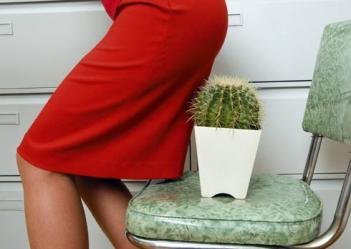Medical expert of the article
New publications
Factors that increase the risk of hemorrhoids
Last reviewed: 04.07.2025

All iLive content is medically reviewed or fact checked to ensure as much factual accuracy as possible.
We have strict sourcing guidelines and only link to reputable media sites, academic research institutions and, whenever possible, medically peer reviewed studies. Note that the numbers in parentheses ([1], [2], etc.) are clickable links to these studies.
If you feel that any of our content is inaccurate, out-of-date, or otherwise questionable, please select it and press Ctrl + Enter.

What factors increase the risk of developing hemorrhoids?
Persistent constipation or diarrhea. These conditions can lead to straining during bowel movements and hemorrhoids as a consequence.
Overweight
You can inherit the tendency to get hemorrhoids from your loved ones and relatives. Even when you are already 50 years old or older. Half of patients over 50 years old seek medical help for hemorrhoids.
Pregnancy and then childbirth
When a baby grows in the mother's belly, during the last six months of pregnancy, women experience increased blood volume and pressure on the pelvic blood vessels. Heavy loads can also cause hemorrhoids.
Diseases of the heart or liver or both
These conditions can lead to a back-up accumulation of blood in the pelvic and abdominal area.
How to prevent hemorrhoids?
Need help with painful lumps, hemorrhoids, and itchy hemorrhoids? About 10 million patients in America alone suffer from hemorrhoids, which are swollen veins in the rectum or parts of the skin around the anus. They can be internal or external. External hemorrhoids most often cause symptoms of pain and itching from an irritated rectum. Internal hemorrhoids are usually painless but can cause bright red bleeding.
Avoid standing or sitting for long periods of time. This can cause blood to pool in the anal area and increase pressure on the veins.
Avoid frequent heavy lifting of various objects or deep breath holding while lifting heavy objects. This can suddenly and sharply increase the pressure in the deep blood vessels.
Why do hemorrhoids occur?
Hemorrhoids are inflamed and swollen veins in the anus and lower rectum. They are usually caused by chronic constipation or diarrhea, sitting on the toilet for long periods of time, aging, obesity, poor diet, genetics, pregnancy, or straining to pass stools. Internal hemorrhoids develop inside the rectum, while external hemorrhoids develop outside the anus.
Symptoms may include bleeding during bowel movements, anal itching, pain or irritation, and stool leaks that cannot be controlled. Eating certain foods can increase the risk of developing hemorrhoids, avoiding these foods can help keep hemorrhoids under control.
Sweet products
Avoid or limit sugary foods such as muffins, doughnuts, cakes, cookies, soda, candy, and ice cream because they can cause hemorrhoids. Pavel Miscovich and Marian Betancourt, authors of The Gastrointestinal Healing Guide, report that consuming large amounts of refined sugar can cause constipation, straining to pass stools, and inflammation of the rectum and anal veins.
Alcohol
Be careful when drinking alcoholic beverages because they can increase your risk of developing hemorrhoids. According to Swami Sadashiva Tirtha, author of "Encyclopedia of Ayurveda: Nature's Secrets to Healing, Prevention, and Longevity," alcoholic beverages can cause dehydration and are a common cause of constipation and straining to pass stool.
Salty foods
Avoid or limit salty foods such as French fries, potato chips, pretzels, canned soups, and salted nuts, as they can cause hemorrhoids. High sodium levels can raise blood pressure and cause rectal veins to bulge, says Don Barone, RD, a nutritionist and author of numerous health books. Bulging rectal veins can cause hemorrhoids and discomfort during difficult bowel movements or after sitting for long periods of time.
Fatty foods
Stay away from fatty foods because they can cause hemorrhoids. According to Phyllis Balch, author of "Healing Food Recipes," fatty foods like sausage, beef, fried chicken, ham, and lamb contain high amounts of saturated fat, the unhealthy fats that can cause your stool to harden, increase pressure on your rectal and anal veins, and raise your risk of hemorrhoids.
Cashew Nuts and Fiber Foods
A low-fiber diet can cause constipation due to the loss of bulk in the stool. Cashews contain relatively low amounts of fiber, with a total fiber content of about 1 gram per ounce. The recommended amount of dietary fiber is 25 grams per day for women and 38 grams per day for men, so a diet high in cashews can be a low-fiber diet, which can lead to hemorrhoids.
There is a direct link between cashews and hemorrhoids, but eating too many nuts can lead to fiber deficiency. If you suffer from hemorrhoids, eating more fiber or taking fiber supplements can help relieve symptoms. Drinking as much water as possible can also help prevent constipation. Avoid sitting on the toilet for long periods of time – this will help relieve straining during bowel movements.
Chronic constipation
Straining during bowel movements is the most common cause of internal hemorrhoids. Straining can come with chronic constipation when you least expect it. Chronic constipation causes repeated problems eliminating stool. Habitual straining can cause the body to damage the tissue that supports the blood vessels in the anal area, notes the American Society of Colon and Rectal Surgeons.
The vessels expand as a result of stretching. The walls of the blood vessels become thin. The weakened blood vessels protrude through the anal skin and end up as internal hemorrhoids.
Internal hemorrhoids usually do not cause symptoms in the early stages, but symptoms may occur later. Painless rectal bleeding may indicate that internal hemorrhoids are present. Bleeding appears as bright red blood on toilet paper or in the toilet bowl after a bowel movement.
 [ 13 ]
[ 13 ]
Low protein diet
A low-fiber diet may contribute to hemorrhoids or hemorrhoid attacks. Eating foods high in fiber helps soften your stool and increase its bulk. This will help you avoid straining, which can cause hemorrhoids or hemorrhoid attacks. A high-fiber diet can also prevent constipation, another potential cause of hemorrhoids.
High-fiber foods include fruits, vegetables, and whole grains. The American Dietetic Association recommends that men consume 38 grams of fiber each day and that women consume 25 grams.
Chocolate
No studies have looked specifically at the role of chocolate in the development and progression of hemorrhoids. However, there are foods that are high in fat or contain caffeine, such as chocolate, that can cause constipation, according to the National Clearinghouse. One ounce of semisweet chocolate contains 9 grams of fat. Caffeine causes dehydration, which can lead to constipation. The University of Maryland Medical Center reports that sugary foods can also contribute to constipation. Constipation can increase the straining you have to put stool through your rectum, leading to hemorrhoids.
 [ 14 ], [ 15 ], [ 16 ], [ 17 ], [ 18 ], [ 19 ]
[ 14 ], [ 15 ], [ 16 ], [ 17 ], [ 18 ], [ 19 ]
Effects of weightlifting
When you lift even a light weight, it creates increased tension and strain in your abdomen — which can cause swelling and enlargement of existing hemorrhoids, says Dr. Paul C. Shellito of Harvard Medical School. This swelling can cause hemorrhoid symptoms to temporarily worsen, but heavy lifting and other forms of exercise alone are not likely to significantly worsen health-related hemorrhoid symptoms. Other forms of abdominal strain that can temporarily worsen hemorrhoid symptoms include straining during and after childbirth.
 [ 20 ]
[ 20 ]
How to prevent hemorrhoids with the same exercises?
Engaging in regular exercise can actually help you prevent hemorrhoids from forming or reduce existing hemorrhoid symptoms. This effect is mainly due to the relief of pressure on the rectum or anal veins. Exercise can also help you relieve constipation before it leads to new hemorrhoid symptoms, and it can also help you control your weight and avoid hemorrhoids caused by being overweight or obese.
Common Symptoms of Hemorrhoidal Bleeding
The most common symptom of hemorrhoids is bleeding during bowel movements. But bleeding during bowel movements can also indicate the presence of more serious conditions, including cancer of the rectum or anus. If you are experiencing rectal bleeding, do not attempt to self-diagnose hemorrhoids as the source.
See your doctor for a thorough examination. If you have been diagnosed with hemorrhoids, see your doctor if you have anal pain and regular or excessive bleeding. Also see your doctor if exercise and other home remedies do not relieve your symptoms.
Conclusions
Hemorrhoids never completely heal, according to medical reports. Symptoms of the gastrointestinal disorder may fluctuate depending on the effects of exercise and other factors. If you have persistent or painful hemorrhoid symptoms, your doctor may recommend removing the hemorrhoids using a surgical procedure called hemorrhoidectomy.


